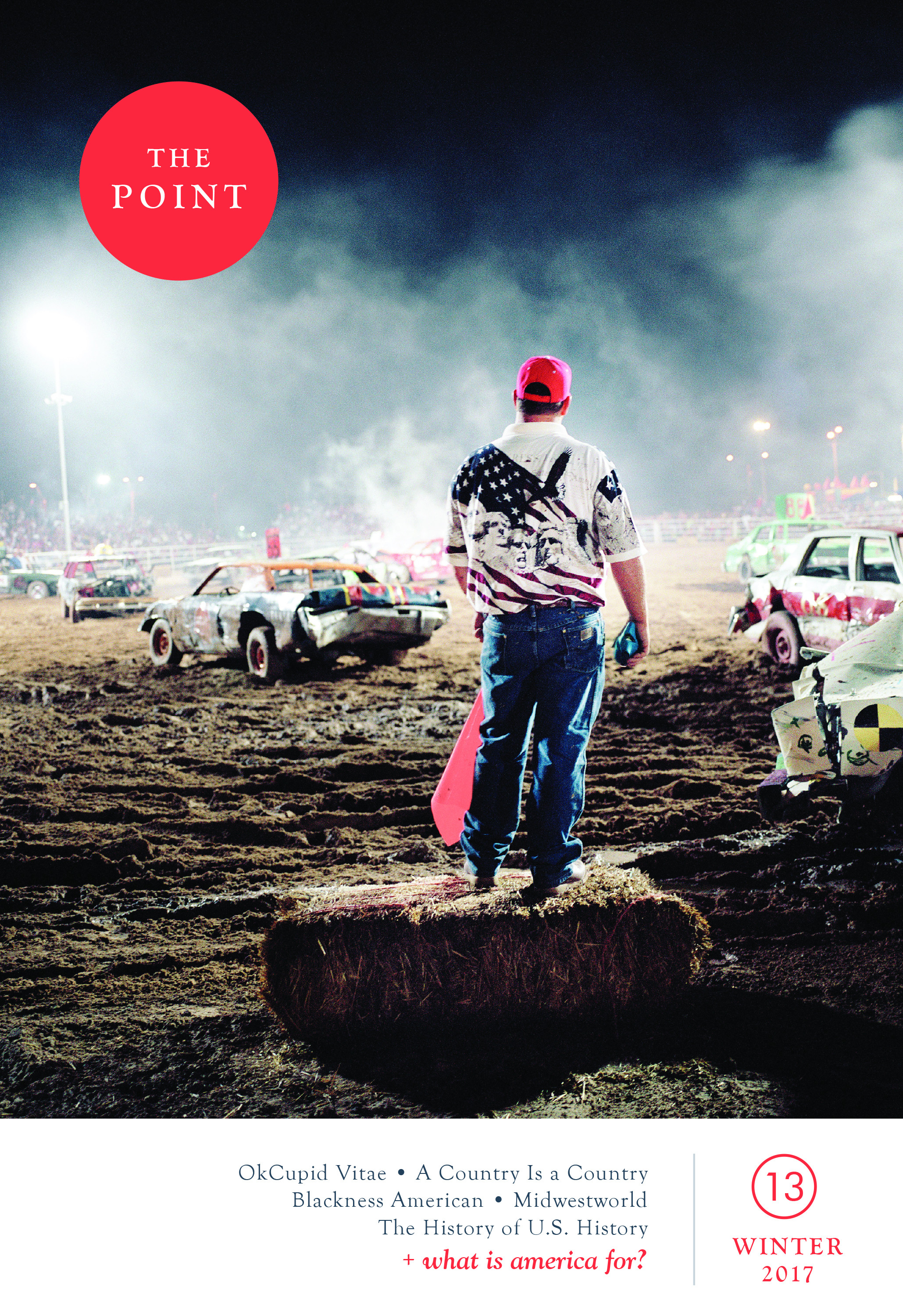It became a commonplace last summer for political commentators to exclaim that they did not know some portion of the American electorate, hence that they did not know some portion of their own country, America.
In 2013 I found myself simultaneously single and on the academic job market for the first time.
When, during the final debate of the 2016 presidential campaign, Chris Wallace asked Donald Trump whether he would promise to accept the election results and Trump responded that he would rather “keep you in suspense,” and when, at a campaign rally later that week, Trump announced dramatically, “I will totally accept the results of this great and historical presidential election—if I win,” commentators were quick to point out that his remarks were like something out of reality TV.
It was the kind of day in Detroit, late in the course of a temperate summer, when the heat rebounds and the humidity returns with a vengeance.
A country is not for this or that. A country is not a chess club or a craft brewery; it is not for playing chess, brewing beer or making money.
When I was growing up in an otherwise uneventful and impoverished neighborhood in Guadalajara, there was an event that never failed to excite us—the return of the barrio’s prodigal sons.
Every athletic event at the University of North Carolina ends the same way. The band strikes up “Hark the Sound” and we throw our arms around each other.
Americans supposedly agree on certain truths. Timeless, universal and famously self-evident, they are the dearest tenets of what the sociologist Robert Bellah called “civil religion in America.”
America is not—as put forth by good-guy John Edwards, recently revived by renowned race-pedagogue David Simon—“two Americas,” but if it were, both of them would be Christian.
In America I was set free.
In 1953, the historian Daniel Boorstin testified before the House Un-American Activities Committee.
What’s beneath “What is America for?” is: Why do we need the nation form?
alt right: i) right-wing racists who use leftist rhetoric. ii) establishment.
Chris Kraus’s I Love Dick came into my life accidentally.
Kristin Dombek’s The Selfishness of Others begins by introducing three characters.
I did not go to the woods because I wished to live deliberately. I did not go to the woods.
Alexis de Tocqueville’s Democracy in America arrives at an auspicious time. The French sociologist came initially to America to prepare a report on criminal justice, but he ultimately widened his purview to encompass the whole of American society.
